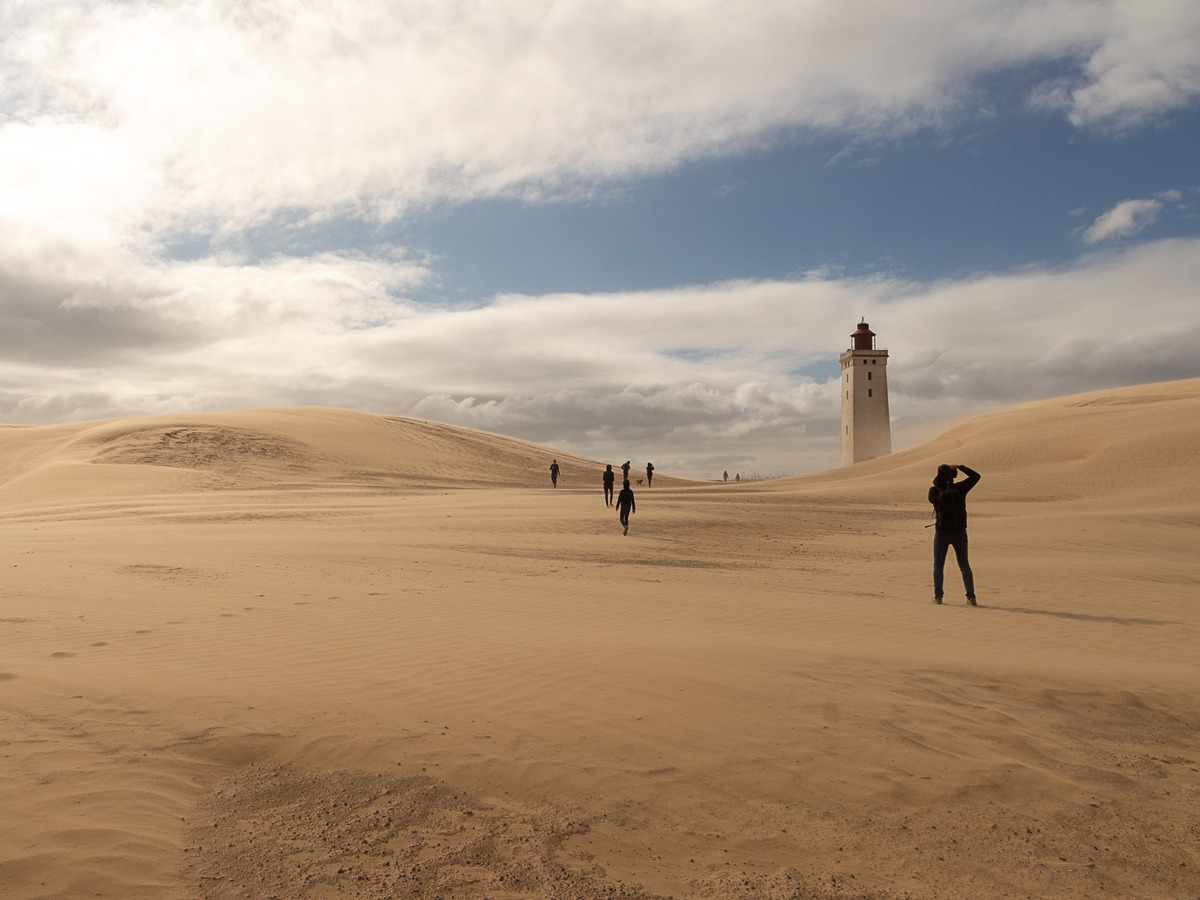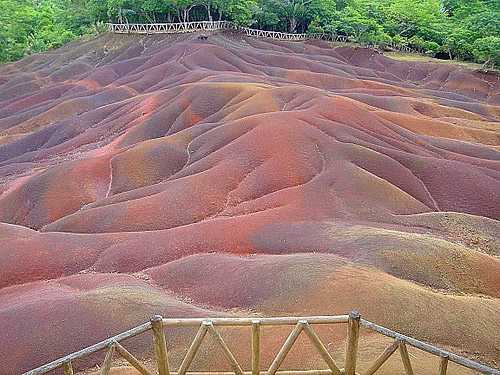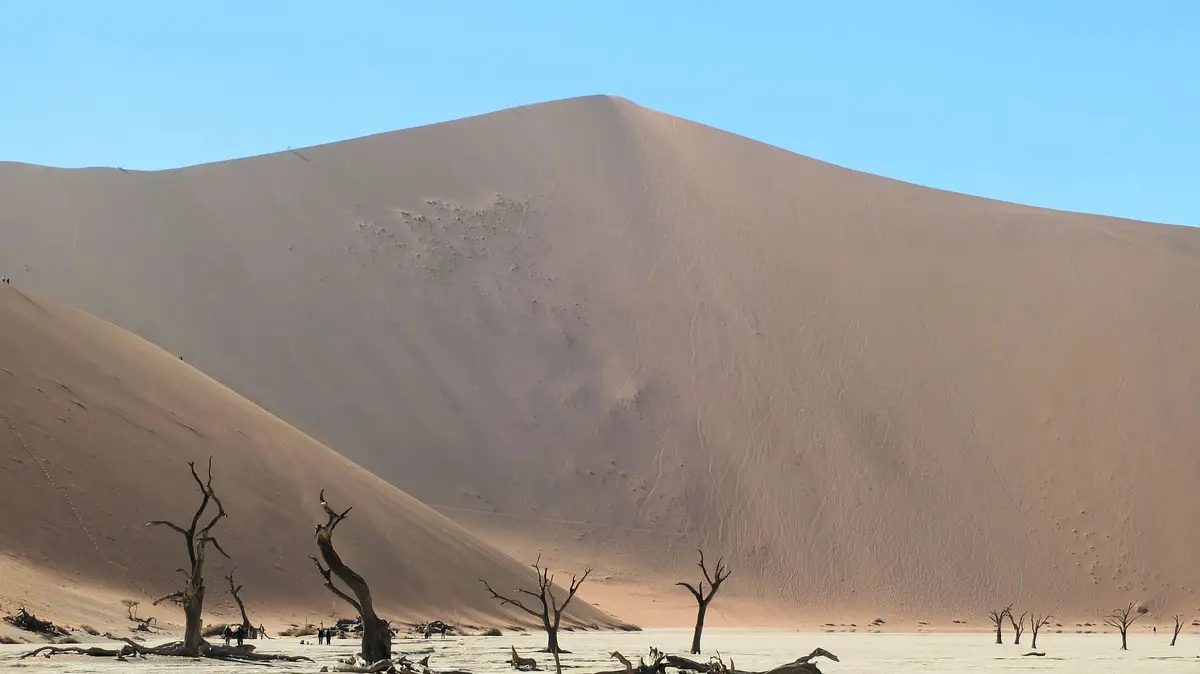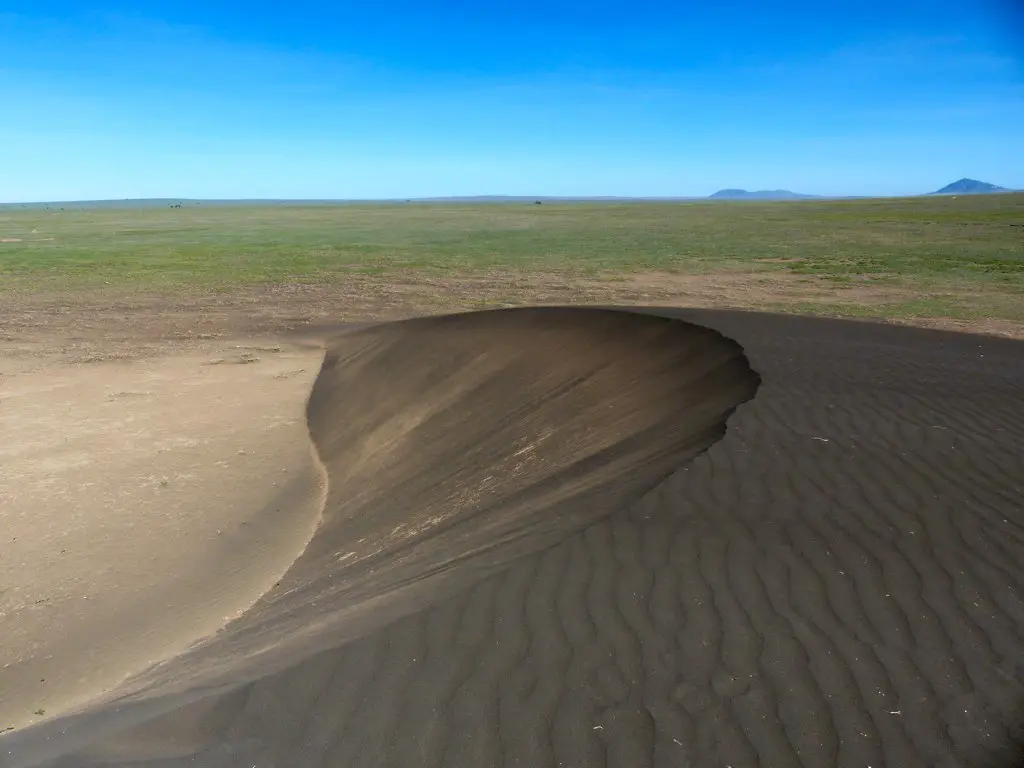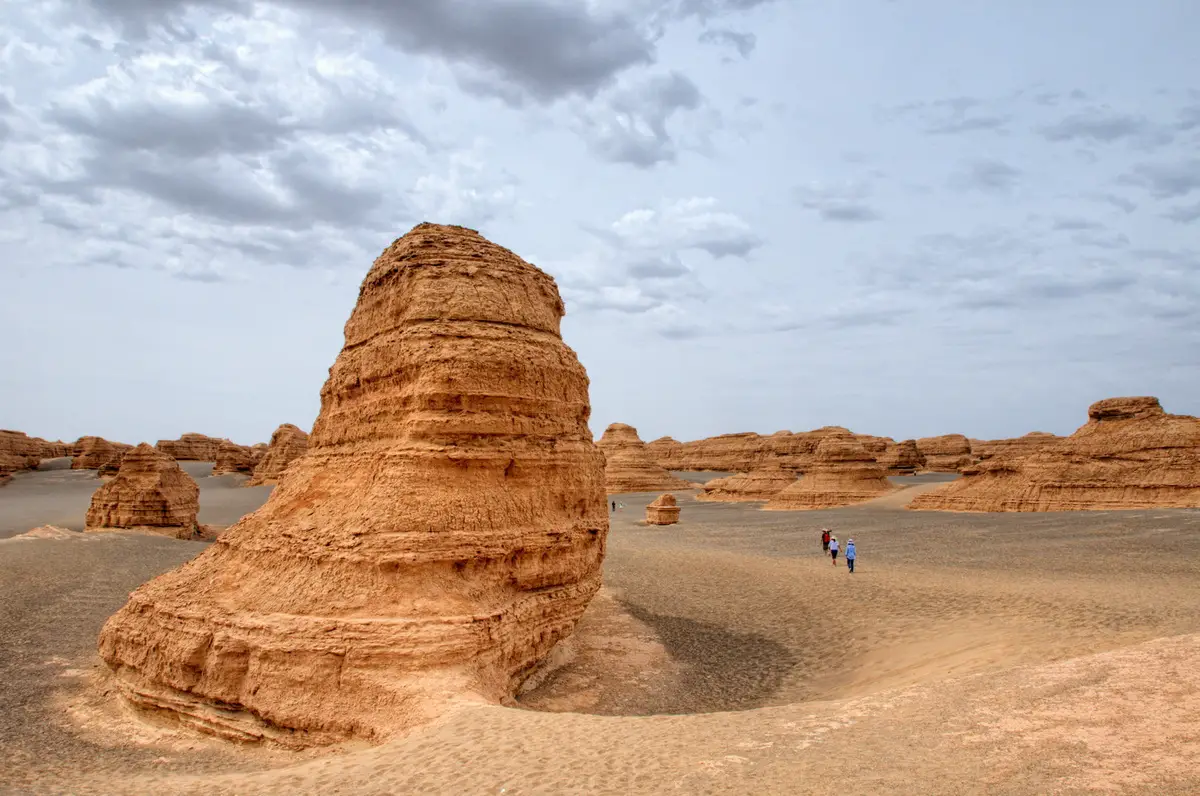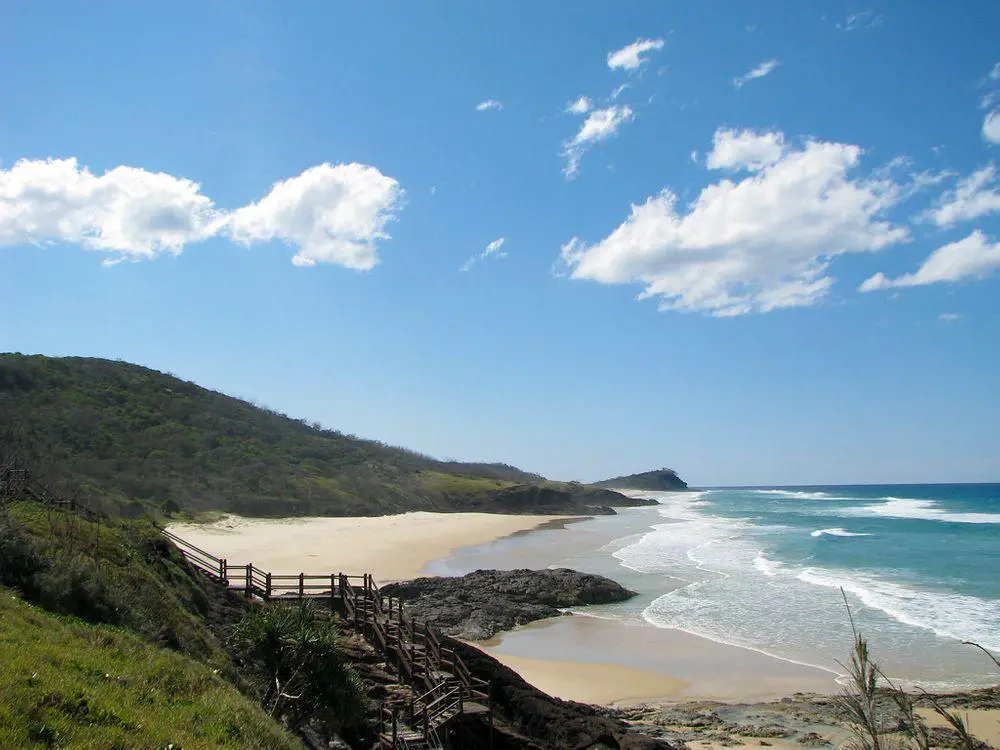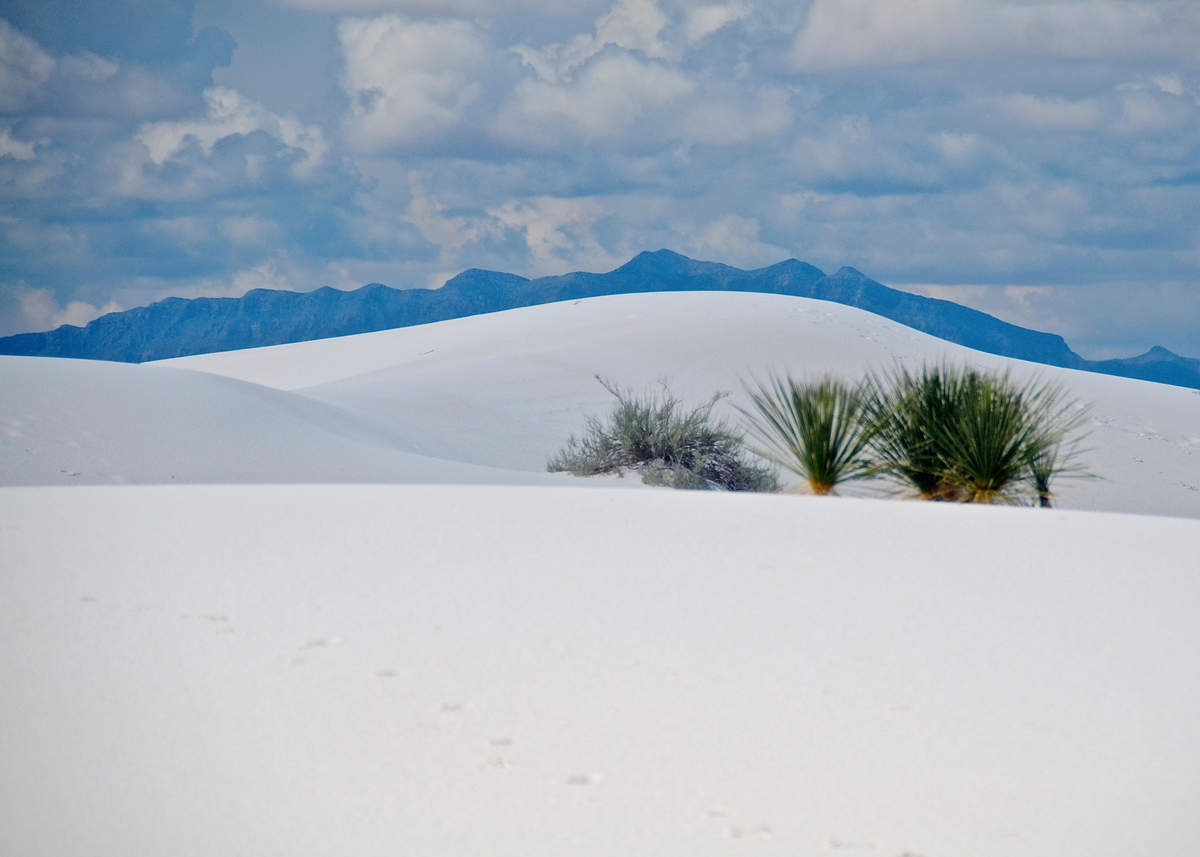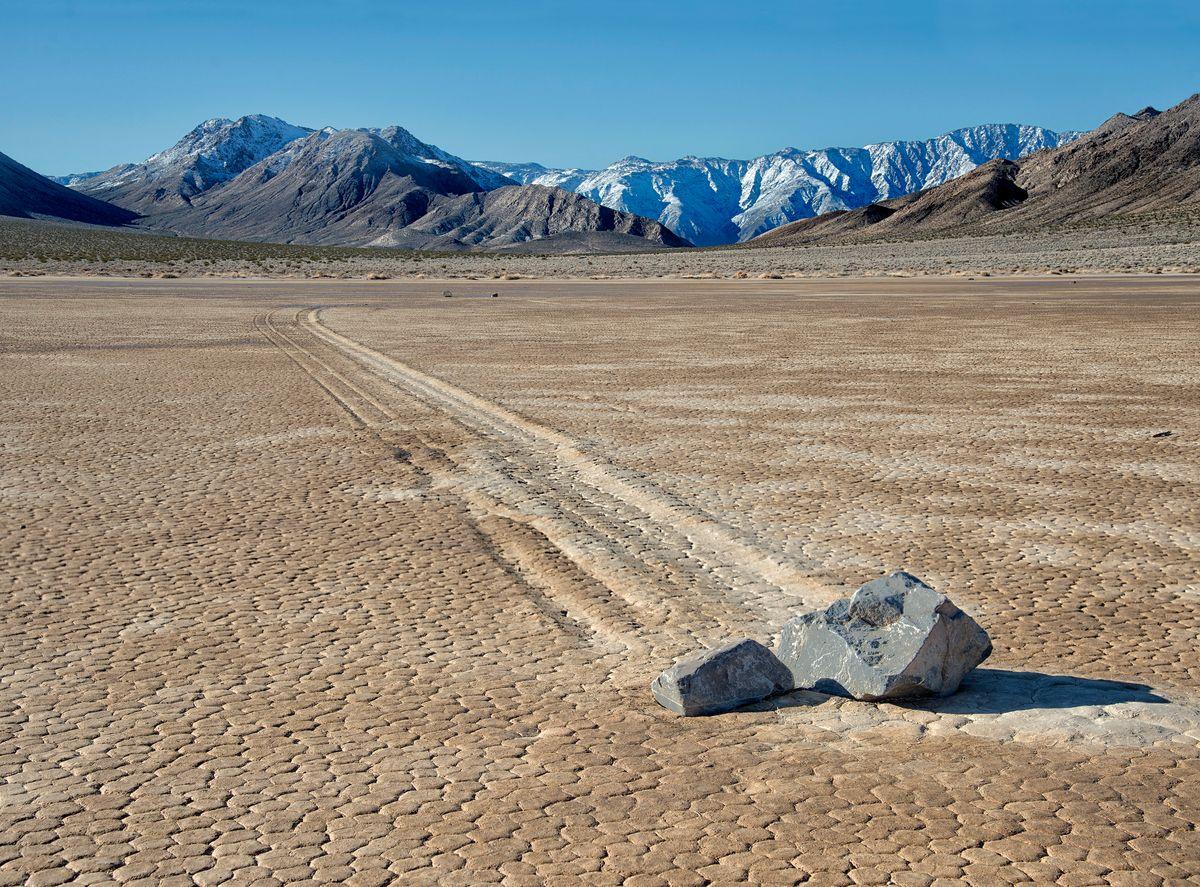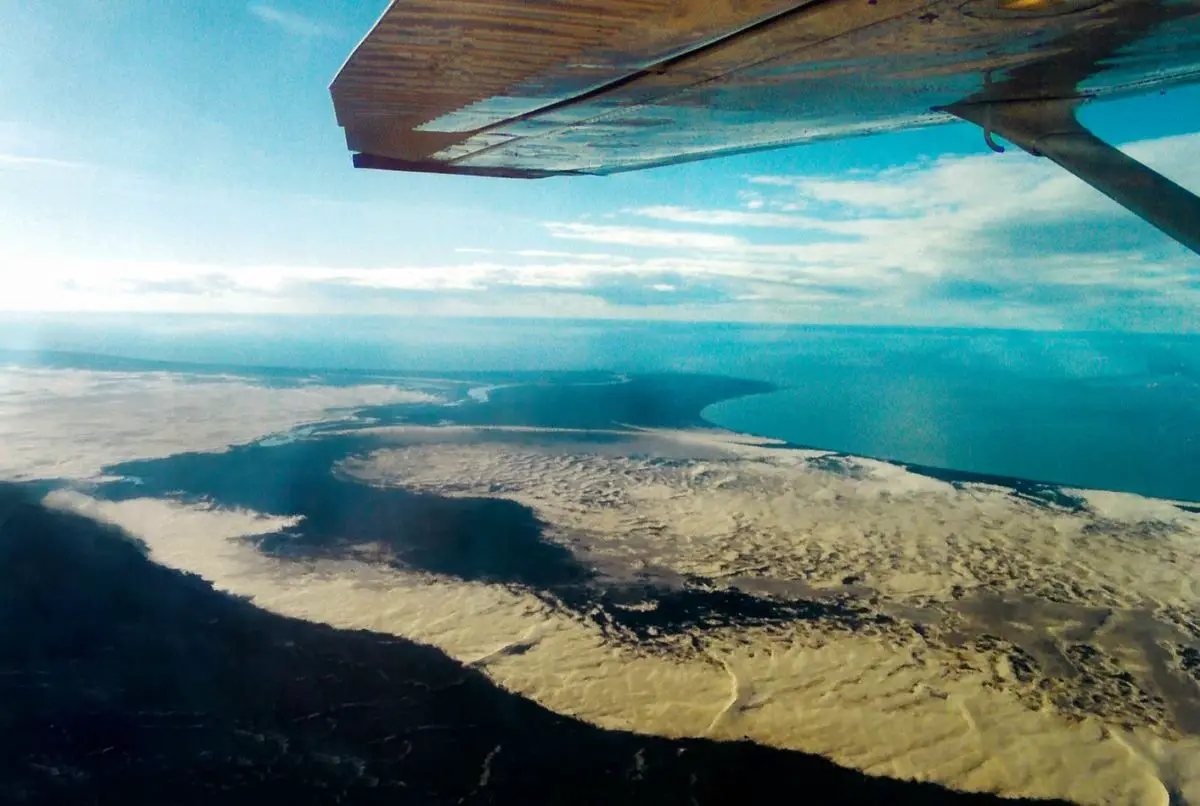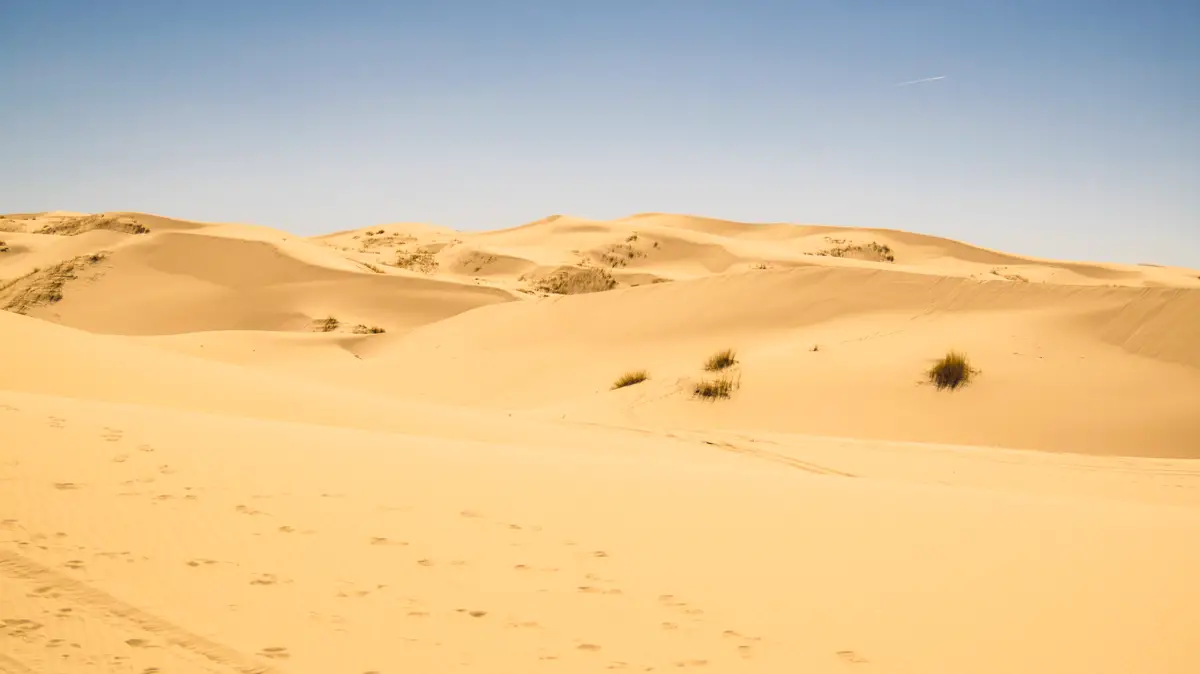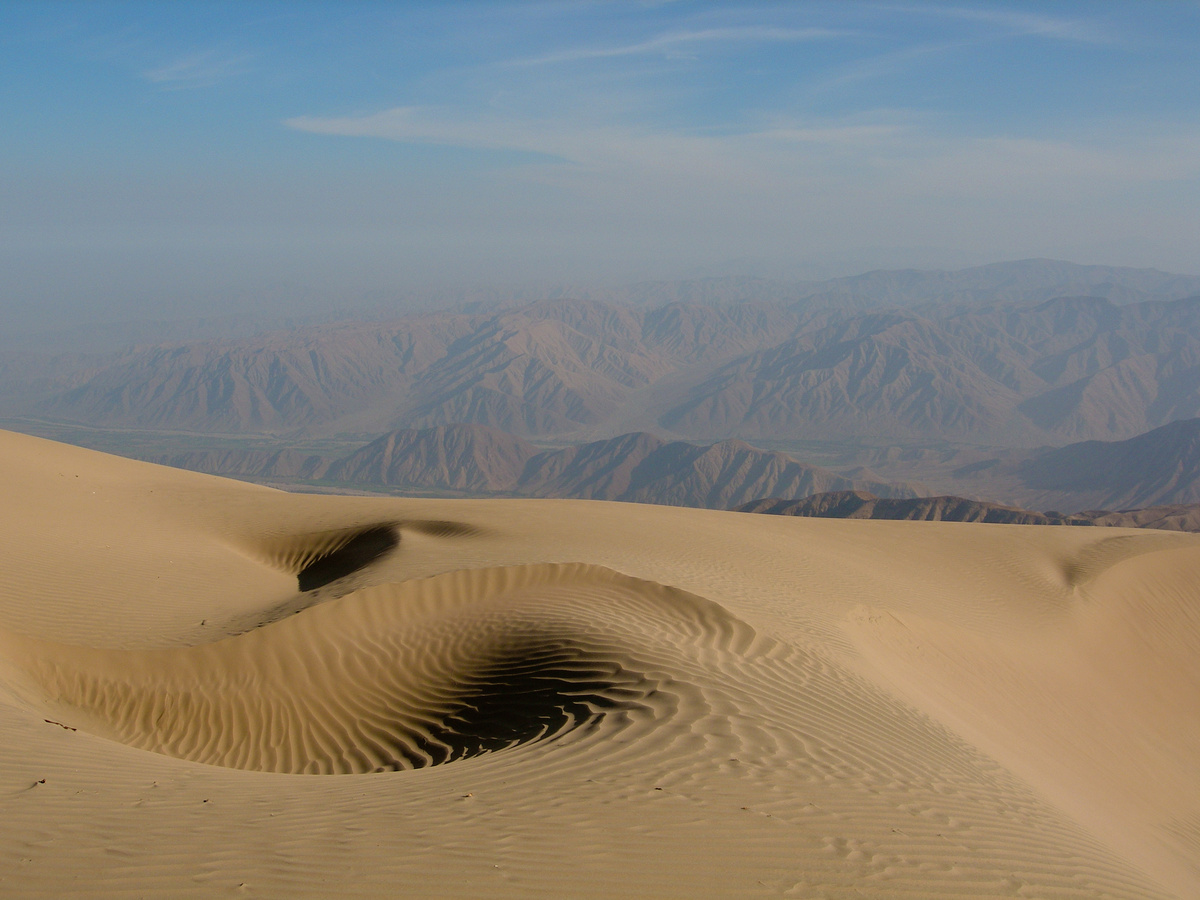Wondermondo 🢖 Categories of wonders 🢖 Geological wonders 🢖 Aeolian formations
Category
Aeolian formations
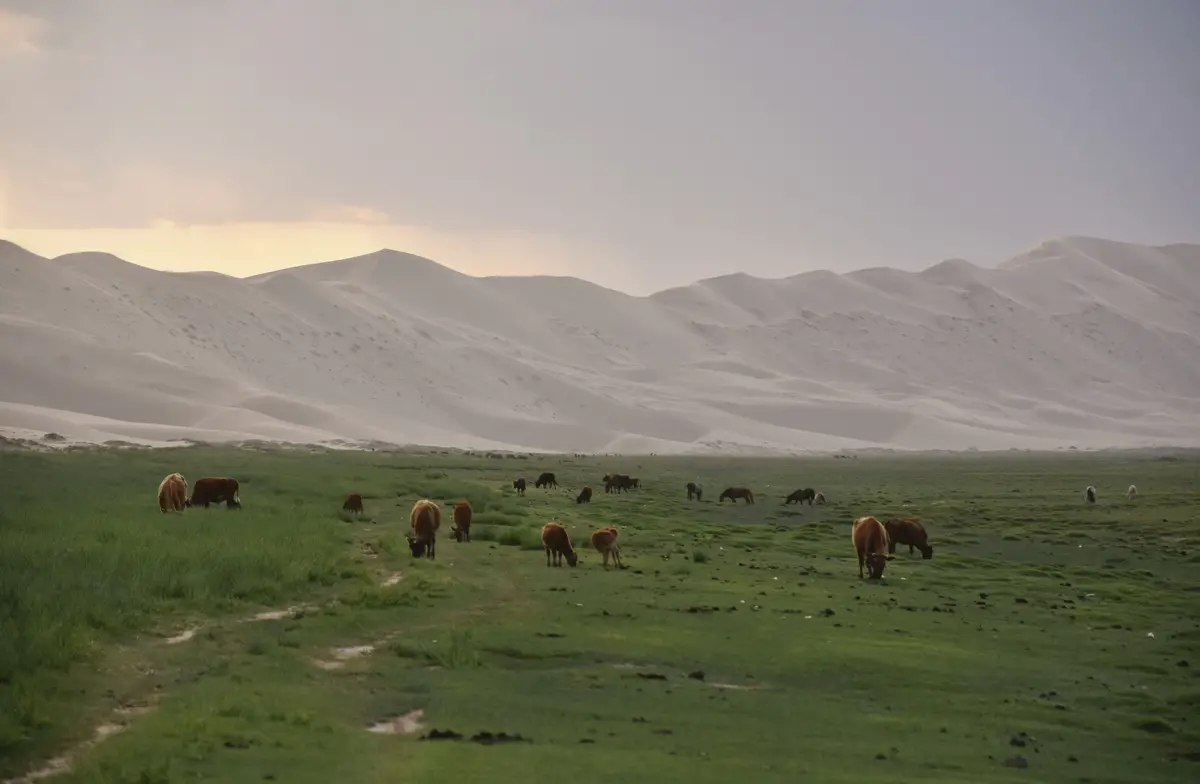
 Described aeolian formations
Described aeolian formations
If you see this after your page is loaded completely, leafletJS files are missing.
 What is included in this category?
What is included in this category?
Aeolian formations are landscape forms and other geological formations that have been created mainly by the wind.
In fact, the wind has shaped our landscape to a larger extent than most of us could imagine. The air has moved around millions of tons of sand and dust, sculpted stones, cliffs, and hoodoos.
The best known of aeolian formations are dunes – hills or ridges from wind-swept sand. Dunes are common along the seacoast and in the deserts but there are beautiful dune complexes even in the Arctic: during the Ice Age and after it, there was no vegetation in many areas and strong winds moved lots of sand unhindered.
In the scarce and rigid soil of dunes form specific ecosystems with many rare and unique species of plants and animals. In many locations dunes have covered also man-made heritage – houses and even whole villages. Most likely, these structures are well-conserved in the sand. But, above all, dunes are just beautiful!
Wind has shaped many hoodoos and eerie rock formations as well. Other forces of nature are involved in this too: temperature changes, water, and chemical reactions.
 Top 25 aeolian formations
Top 25 aeolian formations
Africa
Deadvlei
Namibia, Hardap
Claypan, a visually stunning place with blackened, many centuries-old trunks of dead acacia against orange sand dunes.
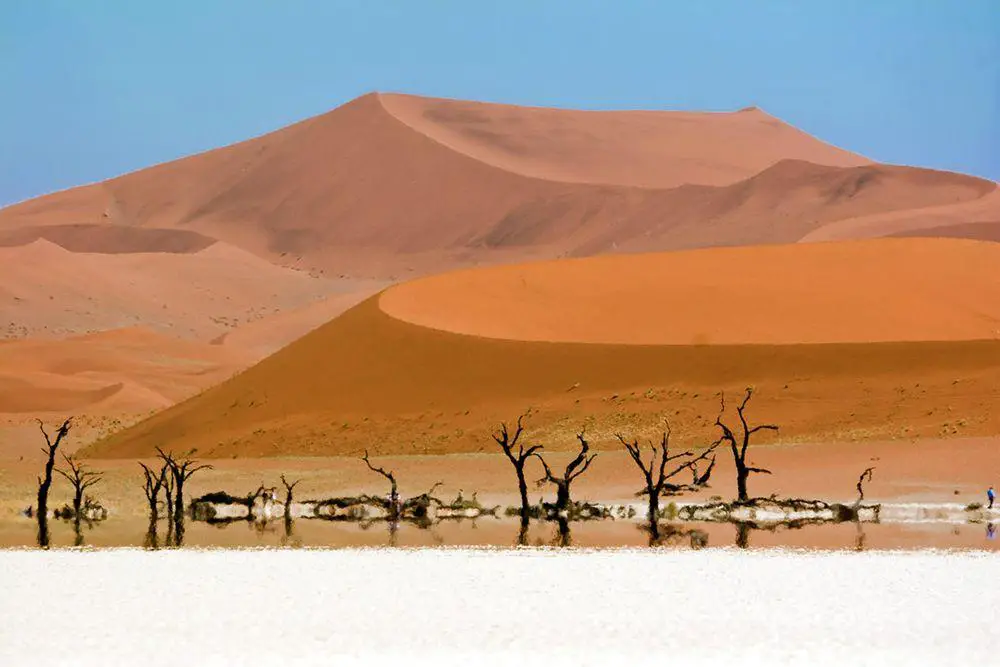
Seven Coloured Earths
Mauritius
Site with an eerie landscape, formed by dunes that are colored in seven distinct colors – blue, brown, green, purple, red, violet, and yellow.
Dune 7
Namibia, Erongo
Very tall sand dunes, 383 m high. The name comes from the fact that this is the seventh dune after the crossing of the Tsauchab River.
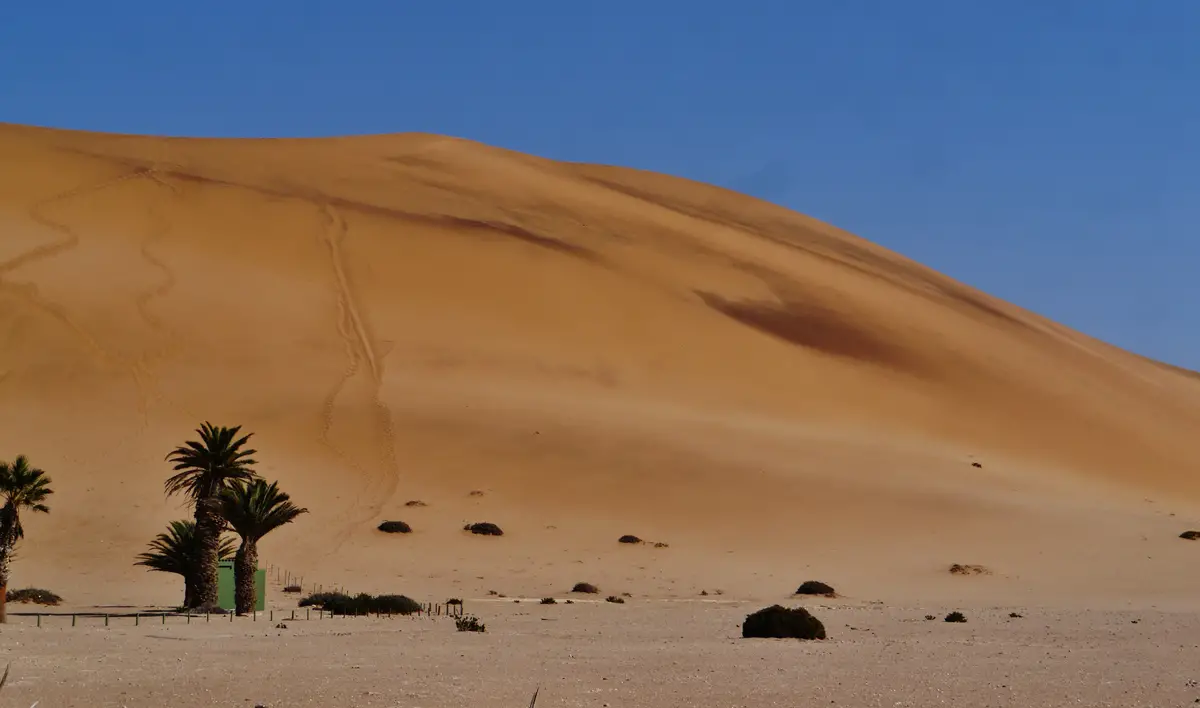
Dune 45
Namibia, Hardap
Visually impressive, up to 170 m tall sand dune. One of the most photographed aeolian formations in the world. The sand in this dune is some 5 million years old.
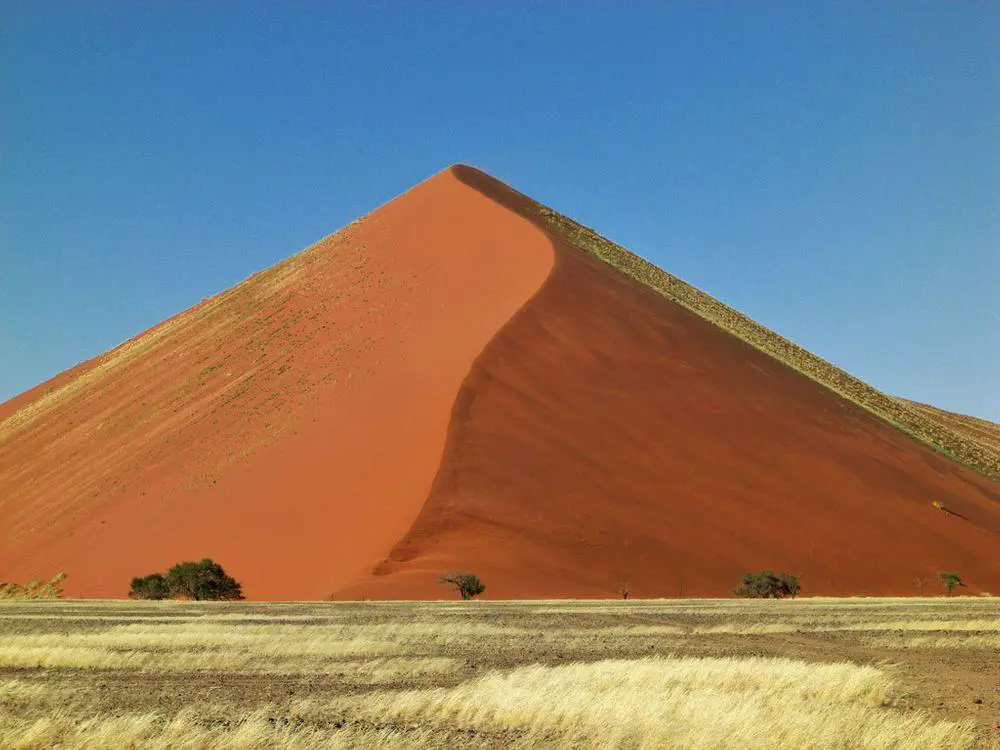
Big Daddy dune
Namibia, Hardap
325 m tall sand dune.
The Shifting Sands of Oldupai
Tanzania, Arusha
Black parabolic dune that contrasts with the color of surrounding plains. This dune has formed from the volcanic ash of Ol Doinyo Lengai volcano and moves some 10 – 20 m every year.
Asia
Dunhuang Yardang National Geopark
China, Gansu
A complex of parallel protrusions of bedrock (yardangs) – an eerie landscape with numerous diverse rock formations. These formations have been sculpted mostly by wind and rain.
Khongoryn Els singing dunes
Mongolia, Bayankhongor
Impressive system of dunes, several hundred meters tall. Dunes emit eerie, humming sounds in the wind or when walking.
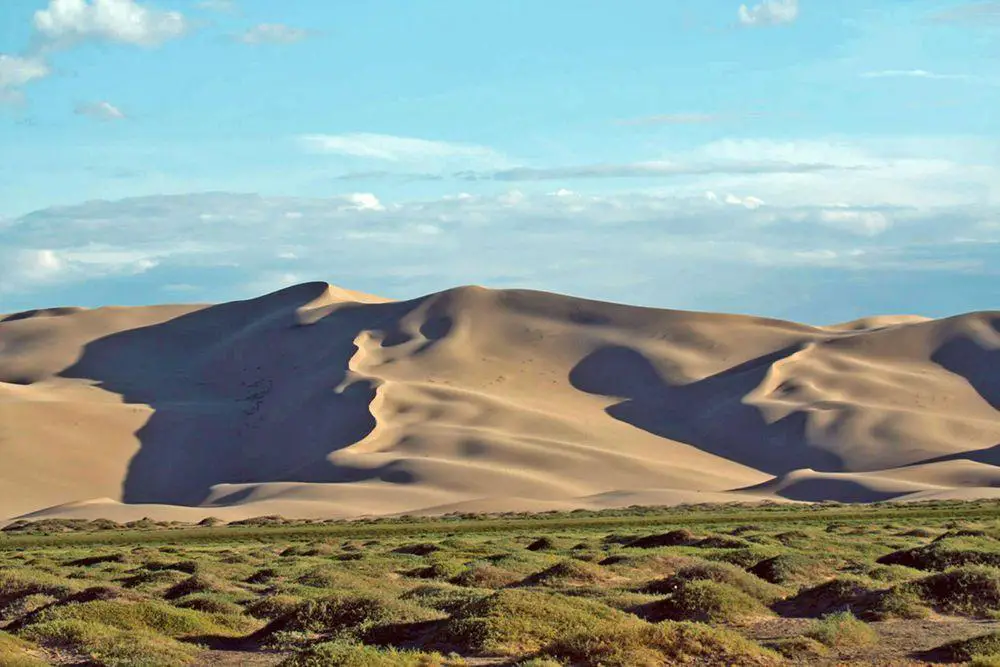
Singing Barchan (Akkum-Kalkan)
Kazakhstan, Almaty Province
This is an enormous sand dune that often emits a strong, booming sound that is created by the friction of sand grains. Sandy ridge is up to 120 m high and 1.5 km long.
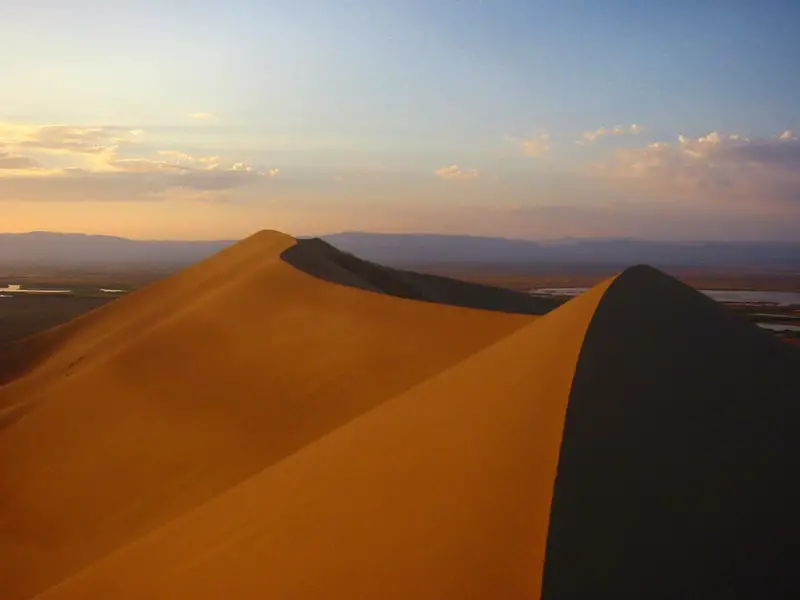
Rig-e Yalan Dune
Iran, Kerman
480 m high sand dune in an enormous dune complex.
Bilutu Peak
China, Inner Mongolia Autonomous Region
Very tall stationary dune that rises some 450 m above its base. This is an interesting megadune – like other megadunes in the Badain Jaran Desert, it has the effect of singing sand. Nearby other aeolian formations are of a similar height, Wushumu Dune is even 528 m high.

Chara Sands
Russia, Zabaykalsky Krai
Unusual desert – inland dunes in the middle of Siberia. This desert is some 9 by 4 km large and has roaming sand dunes that cover the forest. Separate dunes are up to 80 m high.
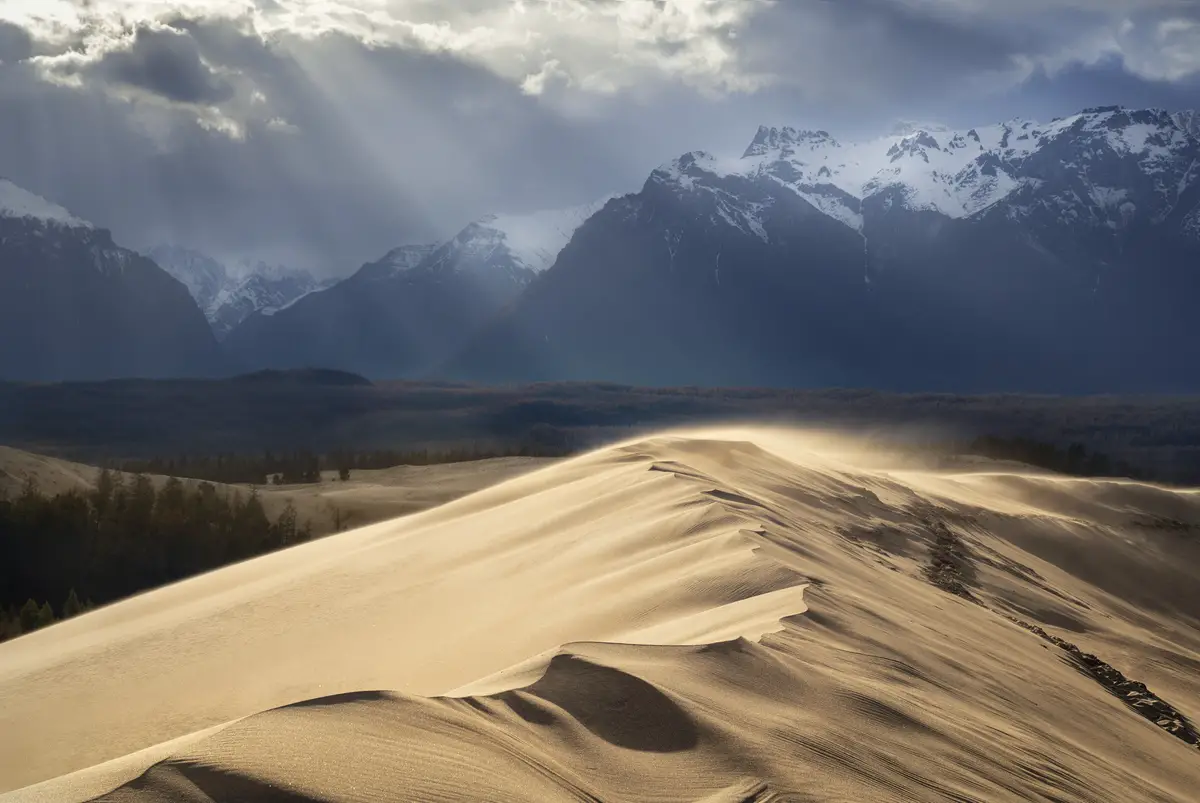
Hami Singing Dune (Hami Mingsha Hill)
China, Xinjiang Uyghur Autonomous Region
Reportedly, the best singing dune in China. The sound is created by the wind and also by walking on dunes.
Australia and Oceania
Fraser Island
Australia, Queensland
The largest sand island in the world, 1,840 km². Contains dunes that are up to 24 meters high, tall rainforests growing at elevations up to 200 meters, unique ‘vallum’ heaths, and more than 100 unique, crystal clear dune lakes retained in the sand by organic matter deposits.
Europe
The Great Dune of Pilat (Dune du Pilat)
France, Nouvelle-Aquitaine
A beautiful nature monument – one of the tallest sand dunes in Europe. It is up to 120 m high and represents a massif that is 500 m wide and 3 km long. Dune has covered houses and trees.
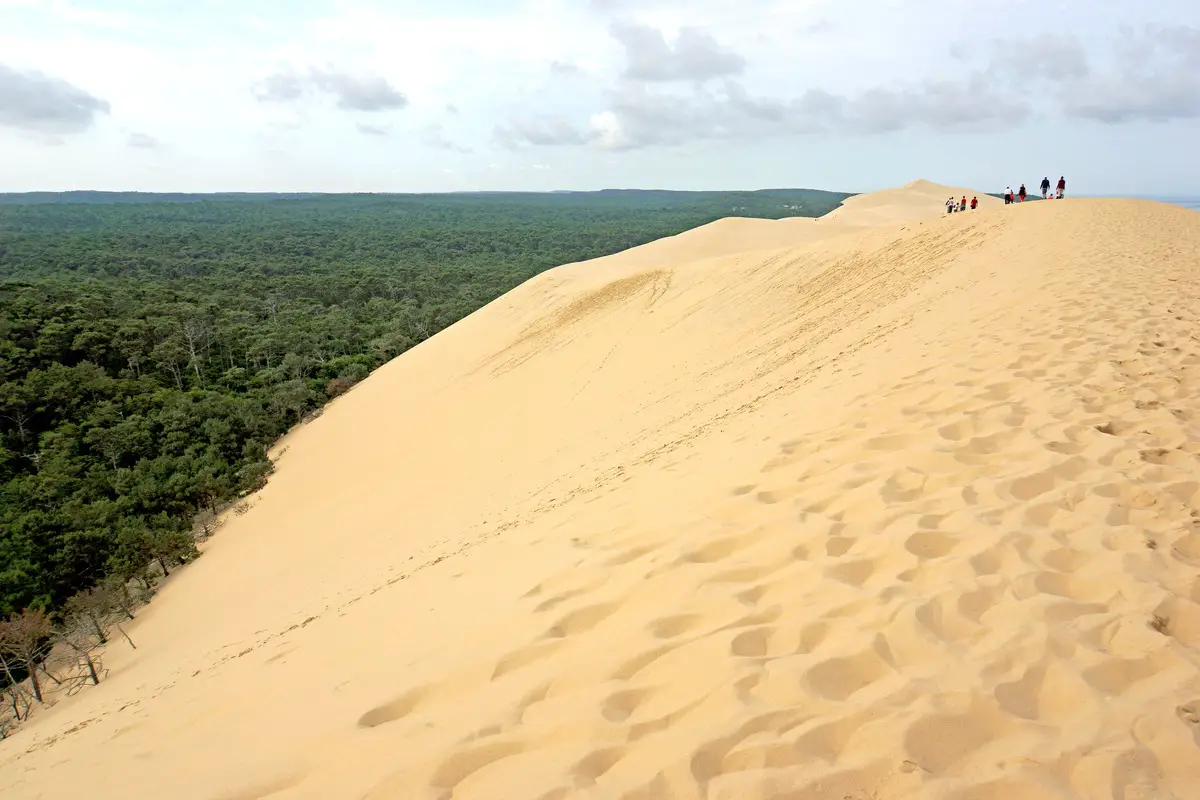
North America
White Sands
United States, New Mexico
710 km2 of pure white gypsum sands.
Racetrack Playa
United States, California
Dry lake in Death Valley, where the “sailing stones” have left traces in the mud. Stones are moved by the wind in wet mud together with thin ice sheets at the moment when ice sheets are melting.
Athabasca Sand Dunes
Canada, Saskatchewan
Unique geophysical feature – largest inland sand dune massif in the world, 100 kilometers long. Sand dunes reach up to 300 meters in height. Contains 9 endemic plant species which is unique for a location that is far north.
Samalayuca Dune Fields
Mexico, Chihuahua
Several dune fields, a part of the Chihuahua Desert region. Sands consist of pure quartz and are nearly white. In these sands lives a high number of rare and endemic species – most of the 248 plants and 154 animal (mostly – bee) species are found only there.
Hole-in-the-Rock in Papago Park
United States, Arizona
Amazing geological formation – large, several meters high holes in a large sandstone rock that rises from the surrounding desert. These openings – tafoni – presumably, were formed by the action of water and wind.
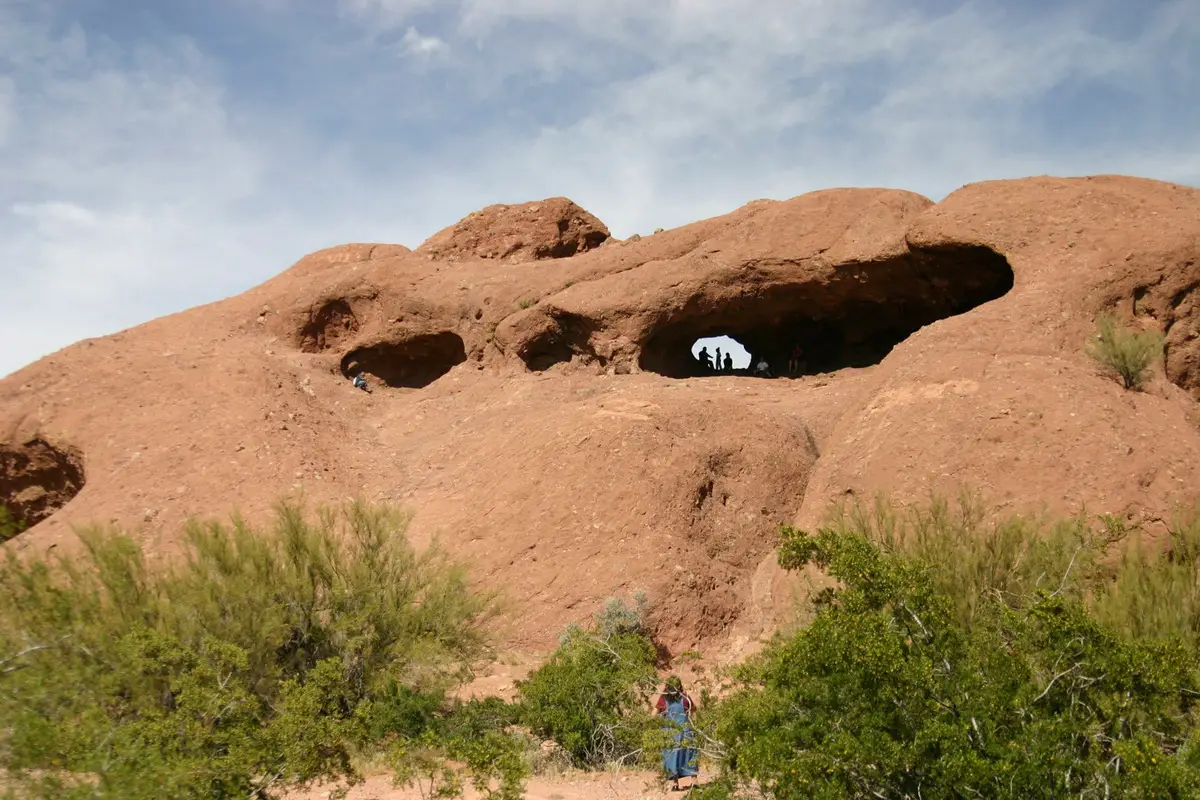
South America
Árbol de Piedra
Bolivia, Potosí
Amazing cliff formation – a mushroom/tree-formed rock in the desert, standing on a thin “foot”.
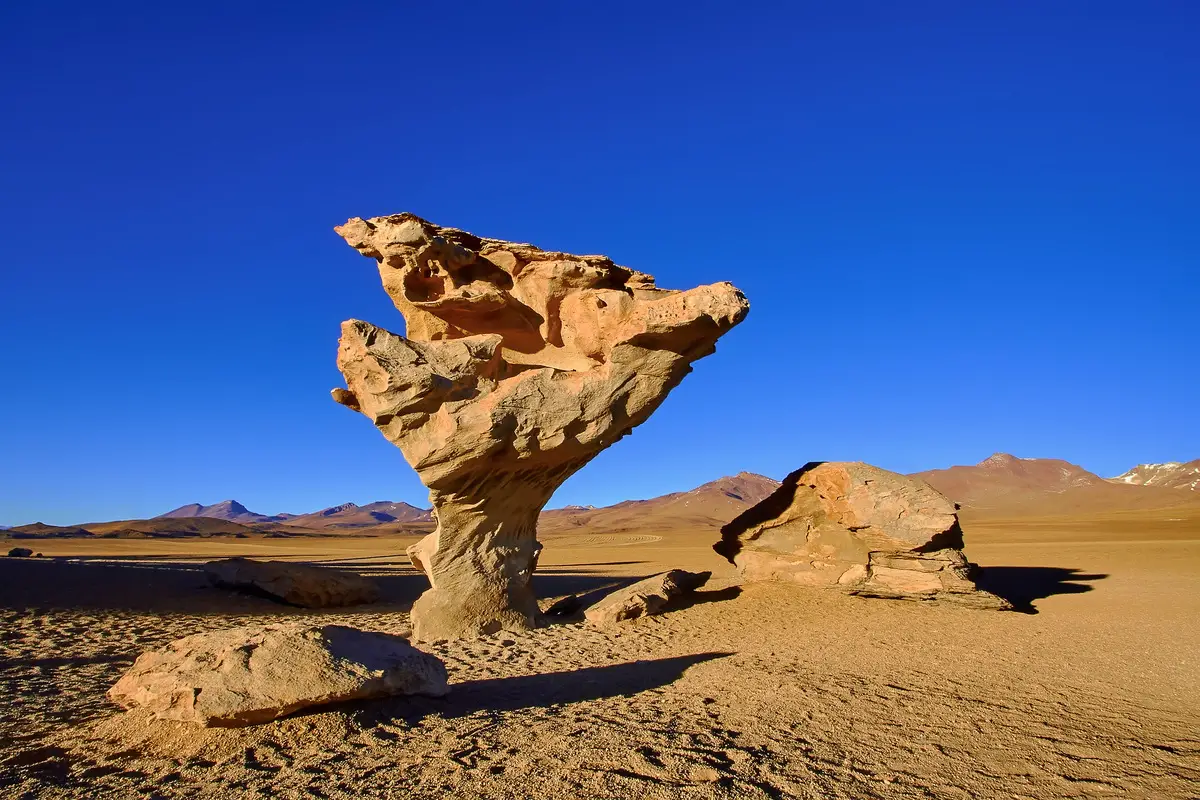
Lençóis Maranhenses
Brazil, Maranhão
This is a huge area with sweeping sand dunes that are almost totally devoid of vegetation. Thanks to abundant rain dunes are adorned with beautiful deep blue lagoons with fish living there.
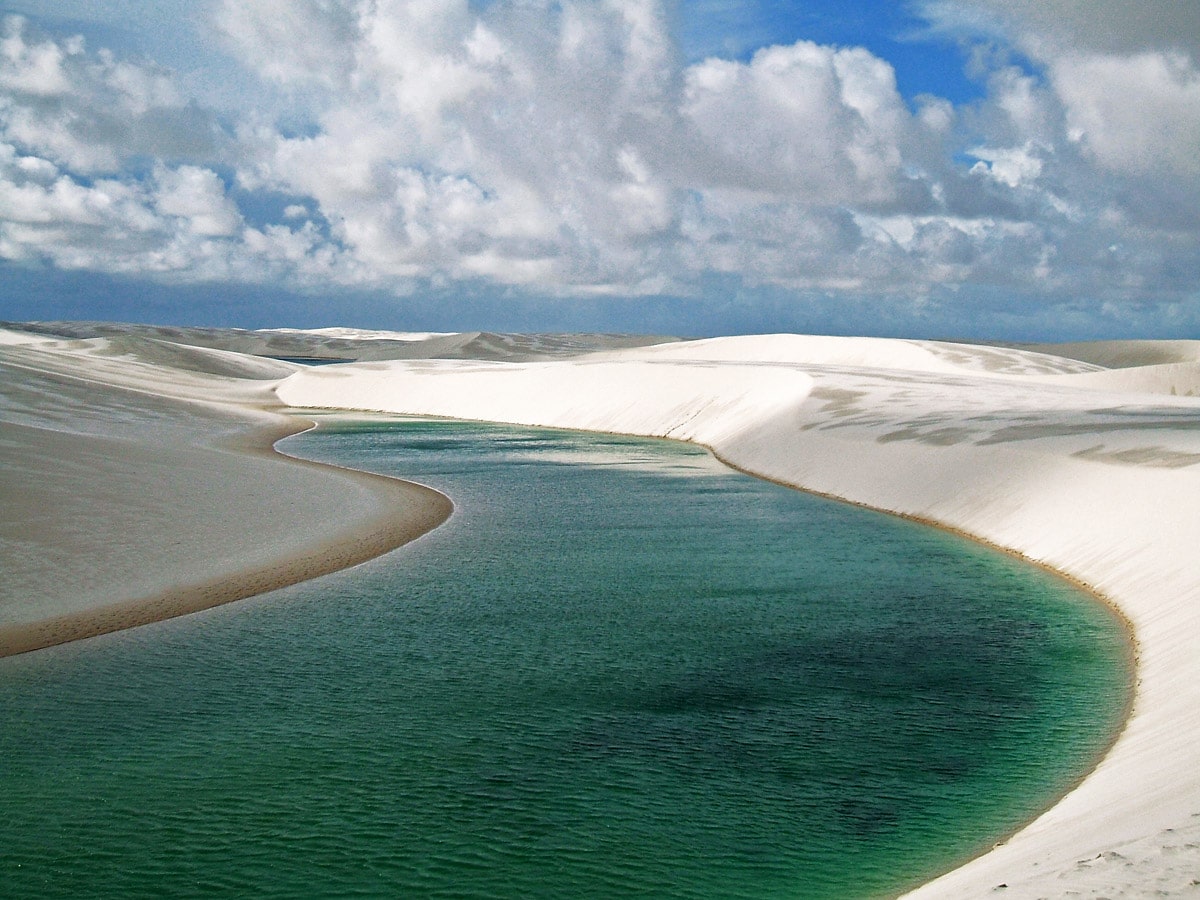
Duna Federico Kirbus
Argentina, Catamarca
The highest sand dune in the world with a height difference of 1,230 meters.
Cerro Blanco
Peru, Ica
A giant dune perched high in the mountains. Its summit is at 2,080 m height but the height of the sand slope is approximately 780 m high. This is a beautiful sandboarding destination.
Cerro Marcha (Duna Grande)
Peru, Ica
The highest dune in Peru and the second highest in the world. This mountain of sand rises 924 m above its surroundings.

 Recommended books
Recommended books
Aeolian Geomorphology: A New Introduction
The new, revised and updated edition of Aeolian Geomorphology offers a concise and highly accessible introduction to the subject. The text covers the topics of deserts and coastlines, as well as periglacial and planetary landforms. The authors review the range of aeolian characteristics that include soil erosion and its consequences, continental scale dust storms, sand dunes and loess.
Dunes: Dynamics, Morphology, History
Dunes is the first book in over a decade to incorporate the latest research in this active and fast-developing field. It discusses the shapes, sizes, patterns, distribution, history and care of wind-blown dunes, and covers all aspects of dunes, terrestrial and in the Solar System.

